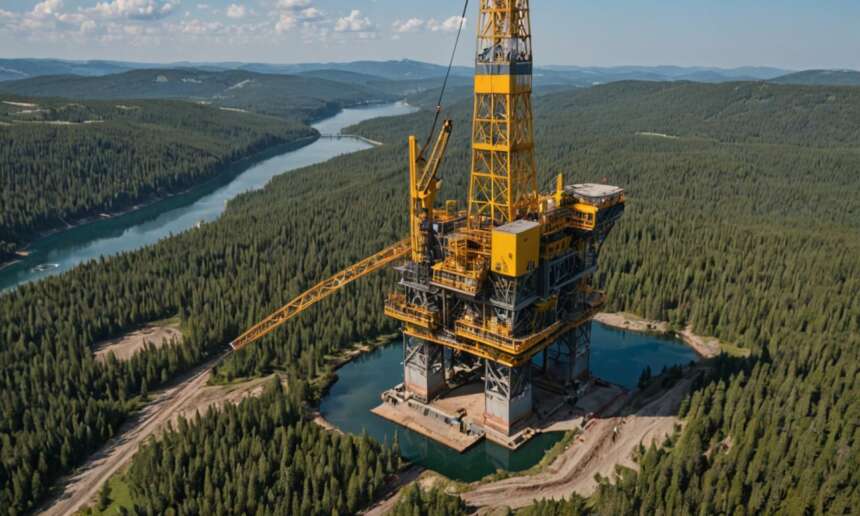If you are intrigued by the fascinating world of petroleum engineering and aspire to embark on a career in this field, you’ve come to the right place. Becoming a petroleum engineer requires a blend of rigorous education, practical experience, and a passion for solving complex problems in the oil and gas industry.
Education Requirements
The journey to becoming a petroleum engineer typically begins with a strong educational foundation. Most entry-level positions in this field require at least a bachelor’s degree in petroleum engineering or a related field such as chemical engineering, mechanical engineering, or geology.
During your undergraduate studies, you’ll delve into fundamental subjects such as calculus, physics, chemistry, geology, and fluid mechanics. These courses provide the essential knowledge base for understanding the principles of petroleum engineering.
Gain Practical Experience
While academic qualifications are crucial, gaining practical experience through internships or co-op programs can significantly enhance your employability and understanding of the industry. Seek out internships with oil and gas companies or engineering firms to gain hands-on experience in drilling operations, reservoir analysis, and production techniques.
Participating in research projects or joining student organizations related to petroleum engineering can also help you develop valuable skills and network with professionals in the field.
Obtain Professional Licensure
Although not always required, obtaining a professional engineering license can demonstrate your competence and commitment to the profession. To become a licensed engineer, you’ll typically need to pass the Fundamentals of Engineering (FE) exam after completing your bachelor’s degree and gain a few years of relevant work experience before taking the Professional Engineering (PE) exam.
Licensure requirements vary by state or country, so be sure to research the specific requirements in your jurisdiction.
Stay Updated with Industry Trends
The field of petroleum engineering is constantly evolving, driven by technological advancements, environmental concerns, and shifts in global energy demand. Aspiring petroleum engineers should stay abreast of industry trends, emerging technologies, and best practices through continuing education, professional development courses, and participation in industry conferences and seminars.
Developing expertise in specialized areas such as reservoir simulation, enhanced oil recovery techniques, or environmental regulations can also enhance your career prospects and make you more competitive in the job market.
Networking and Career Advancement
Building a strong professional network is essential for career advancement in any field, and petroleum engineering is no exception. Attend industry events, join professional organizations such as the Society of Petroleum Engineers (SPE), and connect with peers, mentors, and industry professionals through online platforms like LinkedIn.
Seek out opportunities for mentorship and professional development to accelerate your career growth and expand your knowledge base. Consider pursuing advanced degrees such as a master’s or doctoral degree in petroleum engineering to specialize in a particular area or qualify for higher-level positions.
In conclusion, becoming a petroleum engineer is a rewarding journey that requires dedication, perseverance, and a lifelong commitment to learning and professional development. By obtaining the necessary education, gaining practical experience, obtaining professional licensure, staying updated with industry trends, and networking with professionals, you can position yourself for a successful and fulfilling career in this dynamic field.
Frequently Asked Questions
Here are some common questions aspiring petroleum engineers may have:
| Question | Answer |
|---|---|
| What are some key skills needed for a career in petroleum engineering? | Key skills include problem-solving, critical thinking, strong mathematical and analytical abilities, communication skills, and the ability to work in a team. |
| Is it necessary to obtain a professional engineering license? | While not always required, obtaining a professional engineering license can enhance your credibility and career prospects. Requirements vary by jurisdiction. |
| How important is networking in the field of petroleum engineering? | Networking is crucial for career advancement. Building a strong professional network can lead to opportunities for mentorship, collaboration, and job referrals. |
| What are some emerging trends in the petroleum engineering industry? | Emerging trends include advancements in drilling technology, renewable energy integration, digitalization of operations, and sustainable practices. |
Exploring Specializations
As you progress in your petroleum engineering career, you may choose to specialize in a particular area to deepen your expertise. Some common specializations include:
- Reservoir Engineering
- Drilling Engineering
- Production Engineering
- Well Completion
- Enhanced Oil Recovery
Specializing can open up new career opportunities and allow you to contribute more significantly to specific aspects of oil and gas operations.




